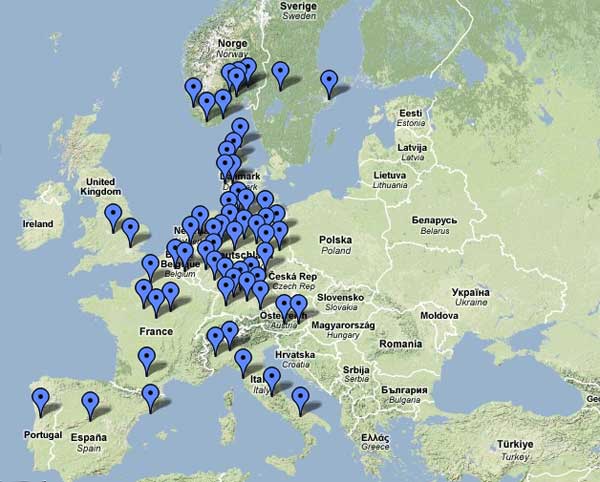Coming soon to a dealership near you, hydrogen powered cars! I can't wait!
At auto shows on two continents Wednesday, three automakers unveiled hydrogen fuel cell vehicles to be delivered to the general public as early as next spring.
Hyundai Motor Co. will be the first to the mass market in the U.S. It unveiled a hydrogen-powered Tucson small SUV at the Los Angeles Auto Show that will be leased to consumers. Honda also revealed plans in Los Angeles for a car due out in 2015. Earlier, at the Tokyo Motor Show, Toyota promised a mass-produced fuel cell car by 2015 in Japan and 2016 in the U.S.
Hydrogen cars are appealing because unlike electric vehicles, they have the range of a typical gasoline car and can be refueled quickly. Experts say the industry also has overcome safety and reliability concerns that have hindered distribution in the past.
But hydrogen cars still have a glaring downside refueling stations are scarce, and costly to build.
Consumers can expect costs in line with some luxury models. In Tokyo, Toyota promised a price of $50,000 to $100,000, and as close to the lower figure as possible. That's comparable to its Lexus luxury sedans, but a range that makes the once space-age experiment with fuel cells more credible.
Hyundai said it will lease the Tucsons for $499 per month for three years with $3,000 down. And Hyundai is offering to pay the hydrogen and maintenance costs. The company will start leasing in the Los Angeles area, where most of the state's nine fueling stations are located. California lawmakers have allocated $100 million to build 100 more. Honda wouldn't reveal any pricing details.
Hydrogen cars could be headed to showroom near you - Yahoo Finance
At auto shows on two continents Wednesday, three automakers unveiled hydrogen fuel cell vehicles to be delivered to the general public as early as next spring.
Hyundai Motor Co. will be the first to the mass market in the U.S. It unveiled a hydrogen-powered Tucson small SUV at the Los Angeles Auto Show that will be leased to consumers. Honda also revealed plans in Los Angeles for a car due out in 2015. Earlier, at the Tokyo Motor Show, Toyota promised a mass-produced fuel cell car by 2015 in Japan and 2016 in the U.S.
Hydrogen cars are appealing because unlike electric vehicles, they have the range of a typical gasoline car and can be refueled quickly. Experts say the industry also has overcome safety and reliability concerns that have hindered distribution in the past.
But hydrogen cars still have a glaring downside refueling stations are scarce, and costly to build.
Consumers can expect costs in line with some luxury models. In Tokyo, Toyota promised a price of $50,000 to $100,000, and as close to the lower figure as possible. That's comparable to its Lexus luxury sedans, but a range that makes the once space-age experiment with fuel cells more credible.
Hyundai said it will lease the Tucsons for $499 per month for three years with $3,000 down. And Hyundai is offering to pay the hydrogen and maintenance costs. The company will start leasing in the Los Angeles area, where most of the state's nine fueling stations are located. California lawmakers have allocated $100 million to build 100 more. Honda wouldn't reveal any pricing details.
Hydrogen cars could be headed to showroom near you - Yahoo Finance





